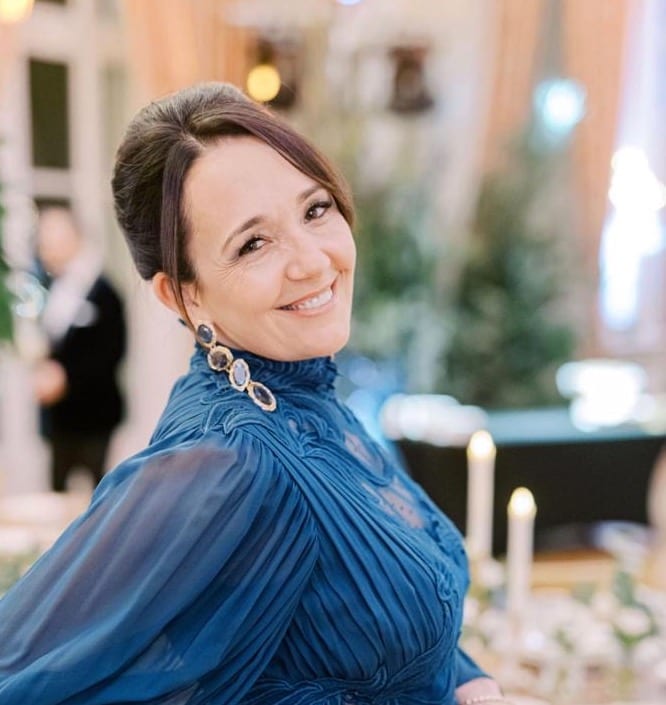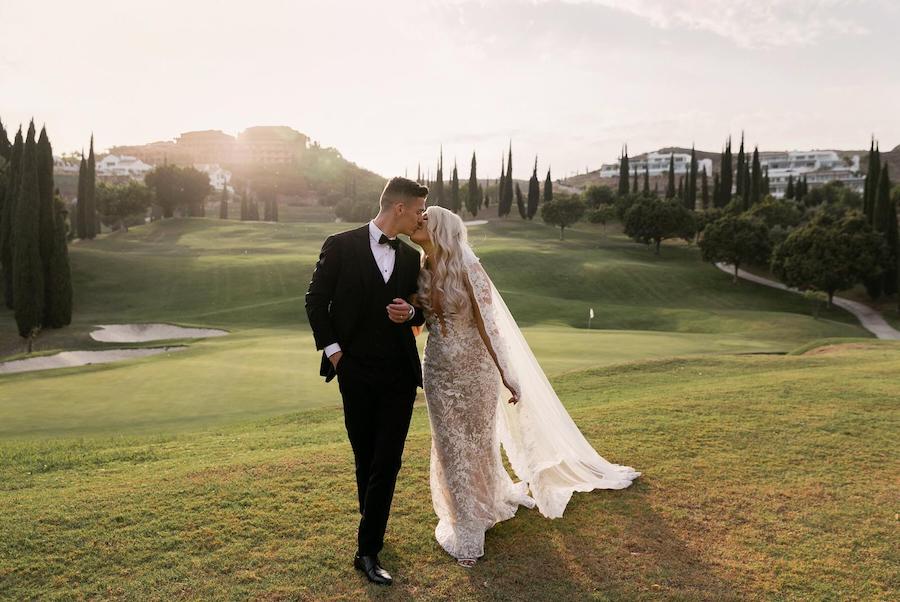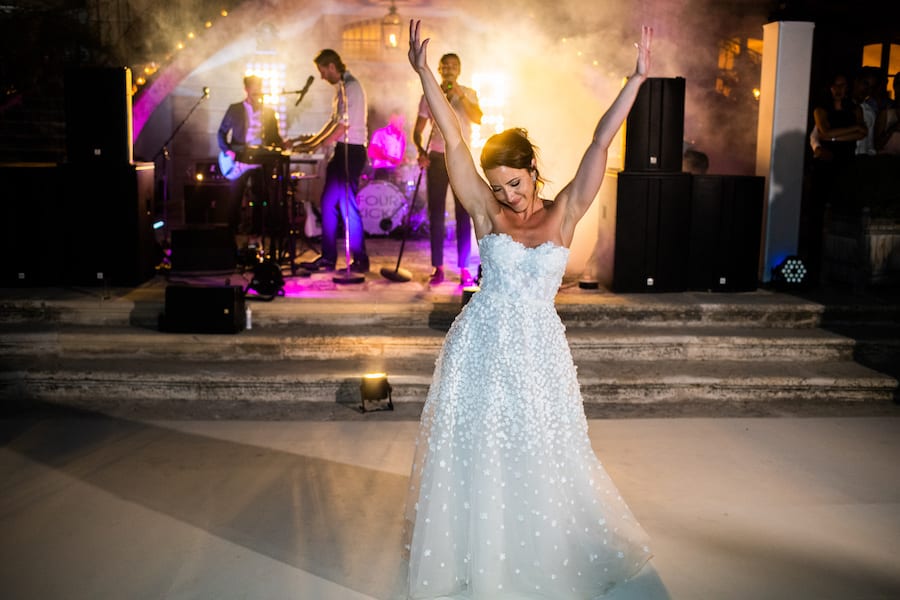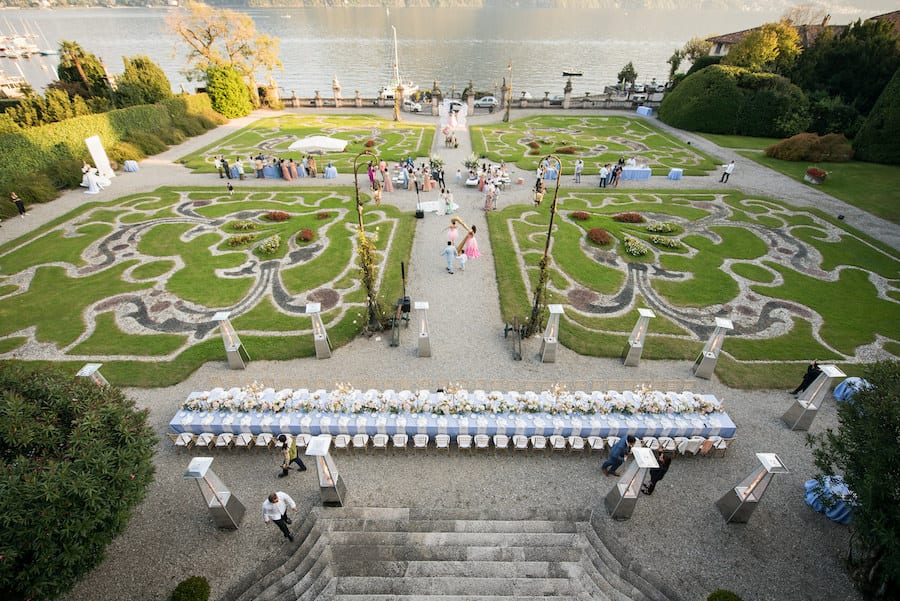When Covid-19 stepped in, luxury wedding planner Muriel Saldalamacchia stepped up, developing protocols to help the government lift a ban on weddings in France and eventually restore an industry worth €10 billion.
Muriel Saldalamacchia has been an international wedding planner for more than 10 years, organising destination weddings for HNWIs across the globe.
After creating a business in New York, she re-established herself in the south of France and has since become a respected reference for the wedding industry, regularly speaking at conferences including the Destination Wedding Planners congress. She also recently published a book, ‘La méthode anti-ghosting’ (The anti-ghosting method), for wedding vendors.
Monaco Life spoke to Muriel about how the crisis has impacted the luxury wedding industry, and her active role in developing protocol for the government to sanction weddings once again in France.
Before the Covid-19 crisis hit, how many weddings were on your books for 2020?
We had 14 weddings planned for this year. The virus started globally in January, and the most important part of the year for booking weddings is between January and April, so I would say I lost up to six weddings this year because of the crisis. All of our weddings until the end of July are postponed to 2021, and while we still have weddings planned for August, September and October, we are waiting to hear direction from the French government with regards to whether we are able to go ahead.
Have you been given any indication from the government about what lies ahead?
I think we should be able to have weddings with up to 100 guests by the middle of July. But we have been working tirelessly behind the scenes with the government to make the industry as safe as possible so we are allowed to resume. This is the only way we can convince the government to make a call about whether or not weddings can go ahead.
In April, I gathered a group of professionals and we created a website called www.label-mariage.fr where clients and vendors could get answers to their questions about the crisis: where they stand with returning deposits, how to get business loans etc. It provides a good balance of information, nothing emotional, just facts. Because vendors, firstly, must consider that they have a company to manage; they can’t promise couples anything for 2021 if their company goes bankrupt.
After gathering all of this information, we decided to write to French President Emmanuel Macron and Prime Minister Édouard Philippe. The PM replied saying that he has heard us, but things can only go ahead according to protocol. So, this is what we are doing now – we are asking doctors and lawyers to assess everything we are doing to make sure it is in line with the strict health protocols.
So rather than waiting to be directed by the government, you have jumped into action to help the government make a decision on weddings?
Exactly, we didn’t want to be the forgotten ones. It is not “just” a wedding, this is an entire industry that is worth more than €5 billion in France. That’s not counting the companies that are not registered here, so it is realistically double that – it is a €10 billion industry that needs to be listened to by the government. So no, we didn’t want to just sit back and wait. That’s why we got together, based our information on facts, and said: “We are here, we are a significant industry that matters to the French economy and involves thousands of jobs, you have to listen to us.”
The main advice for couples right now is postpone, don’t cancel. But does this pose a new set of problems because there are only so many weekends in the year?
Yes. For example, I have a client from China who is looking to have their wedding between June and October on the Amalfi Coast in Italy next year with up to 120 guests. But everything is already booked because the postponed weddings from 2020 have carried over to 2021.
Therefore, we are losing money from 2020, but also from 2021 because there are only 52 weekends in the year. We give clients the option of getting married on a weekday, but this doesn’t always fit in with flights and holidays, etc.
For everyone in the wedding industry, 2020 was going to be an exceptional year, and based on that 2021 was very promising also. But now 2021 will be full of the 2020 weddings, so it will realistically take two years to recover, which is a bad situation for most of the entrepreneurs in the wedding industry to be in.
What is the main concern among couples who are looking to get married?
The main concern for couples is whether the borders will be open and whether they will be able to fly.
They are not so worried about masks and social distancing, but with regards to hygiene standards I recommend, for example, to have six people sit around a large table designed for 10 people. For food, I suggest they don’t have a buffet or a food station, but if they must then they should have someone serving individual portions.
I also I put forward to the government that guests could be pre-screened for Covid-19 before travelling. The same concept applies when you have to travel to Africa and must be vaccinated for diseases, for example, so why not apply that for weddings?
Do you have any advice for vendors and couples?
We are all in this together and this crisis shall pass. I would just like to remind everyone that we are all humans first, then a company or a client second. There is no unique solution, it is all personalised discussion. We have to work together now more than ever.
When are you likely to know more about the future of weddings in France?
We are expecting a decision from the government on 22nd June, as France will be entering its third phase of deconfinement. Based on that information, we will hopefully be able to move forward.
Top photo credit: Valery Villard Photography
Taking charge of €10 billion wedding industry



